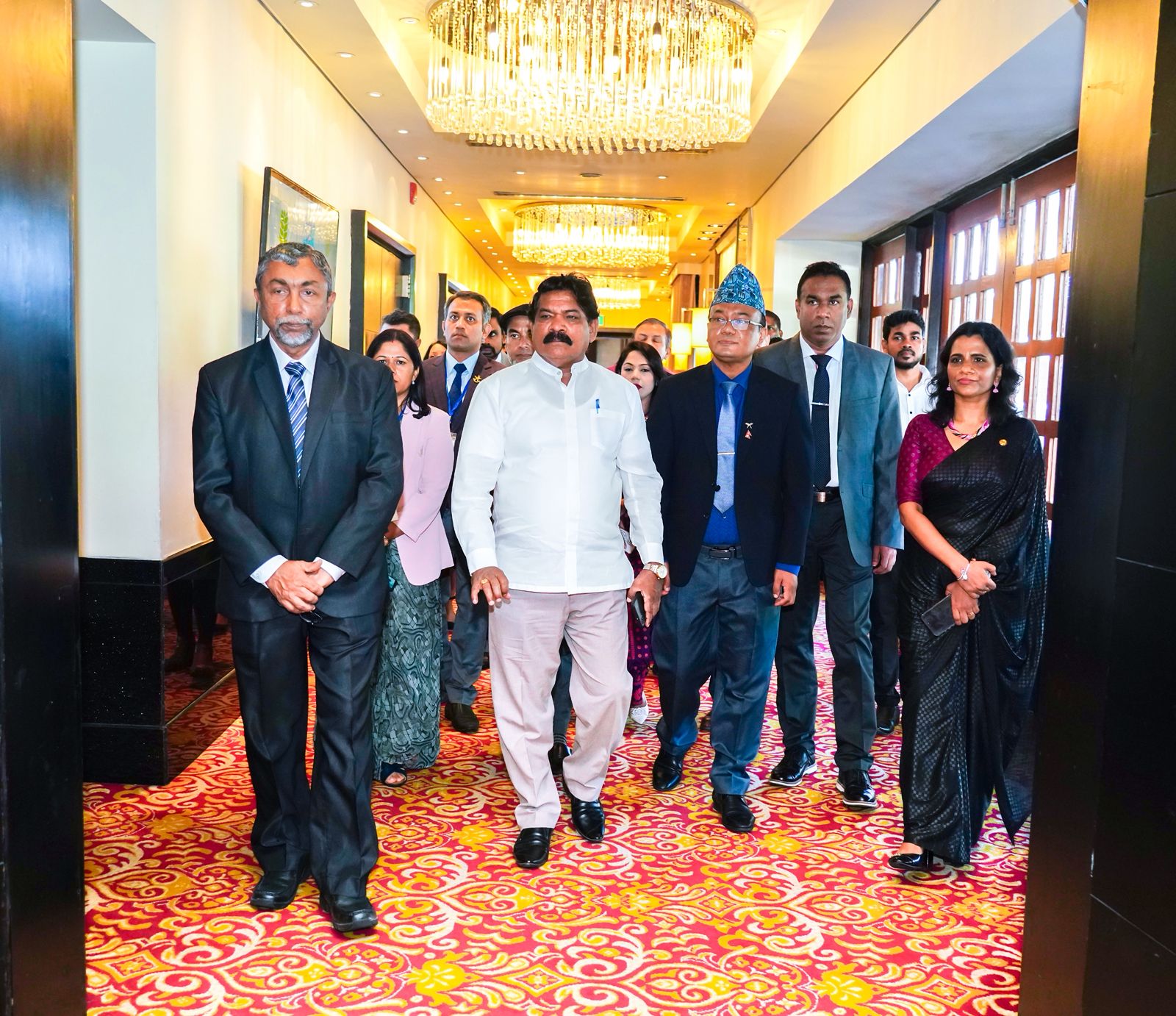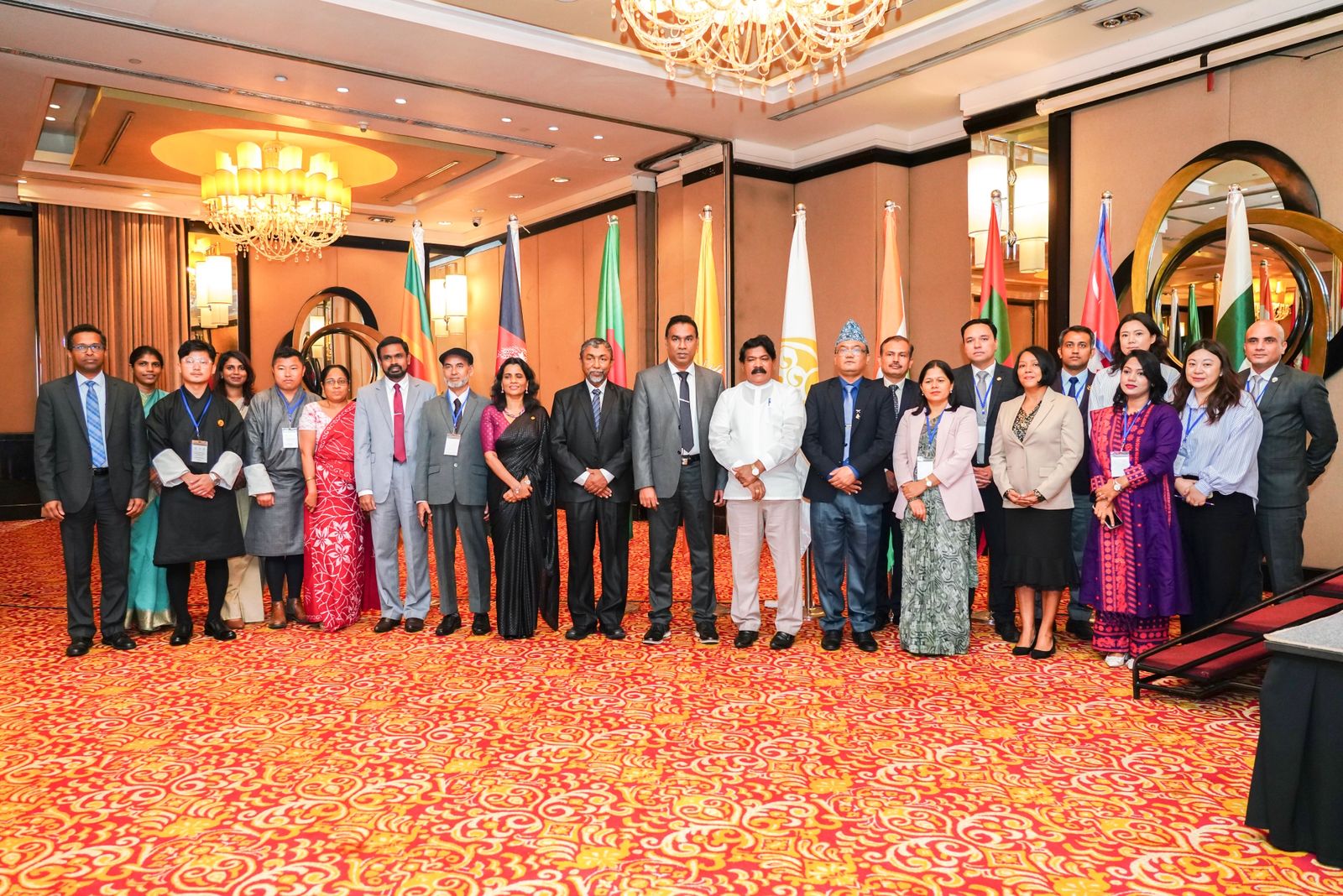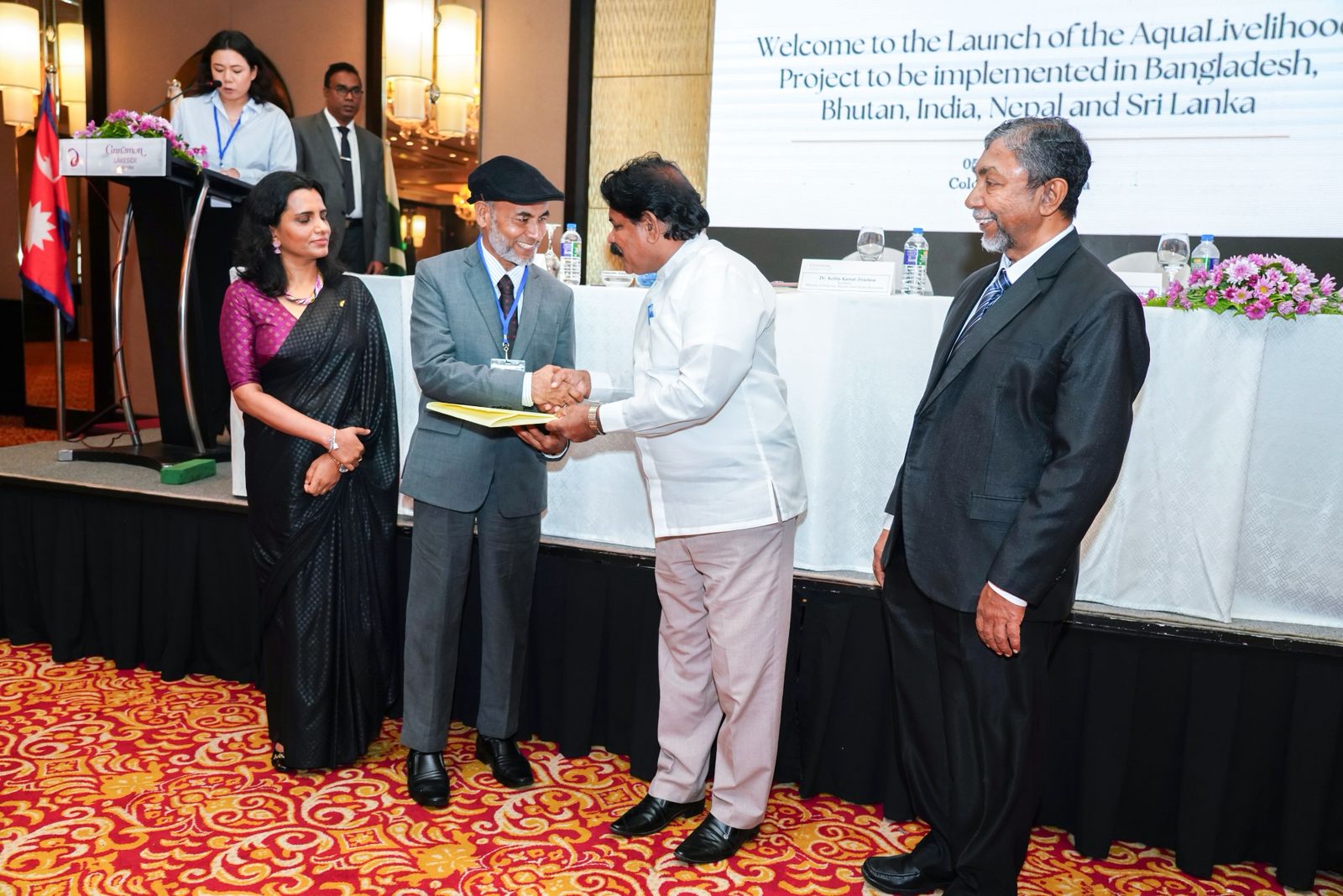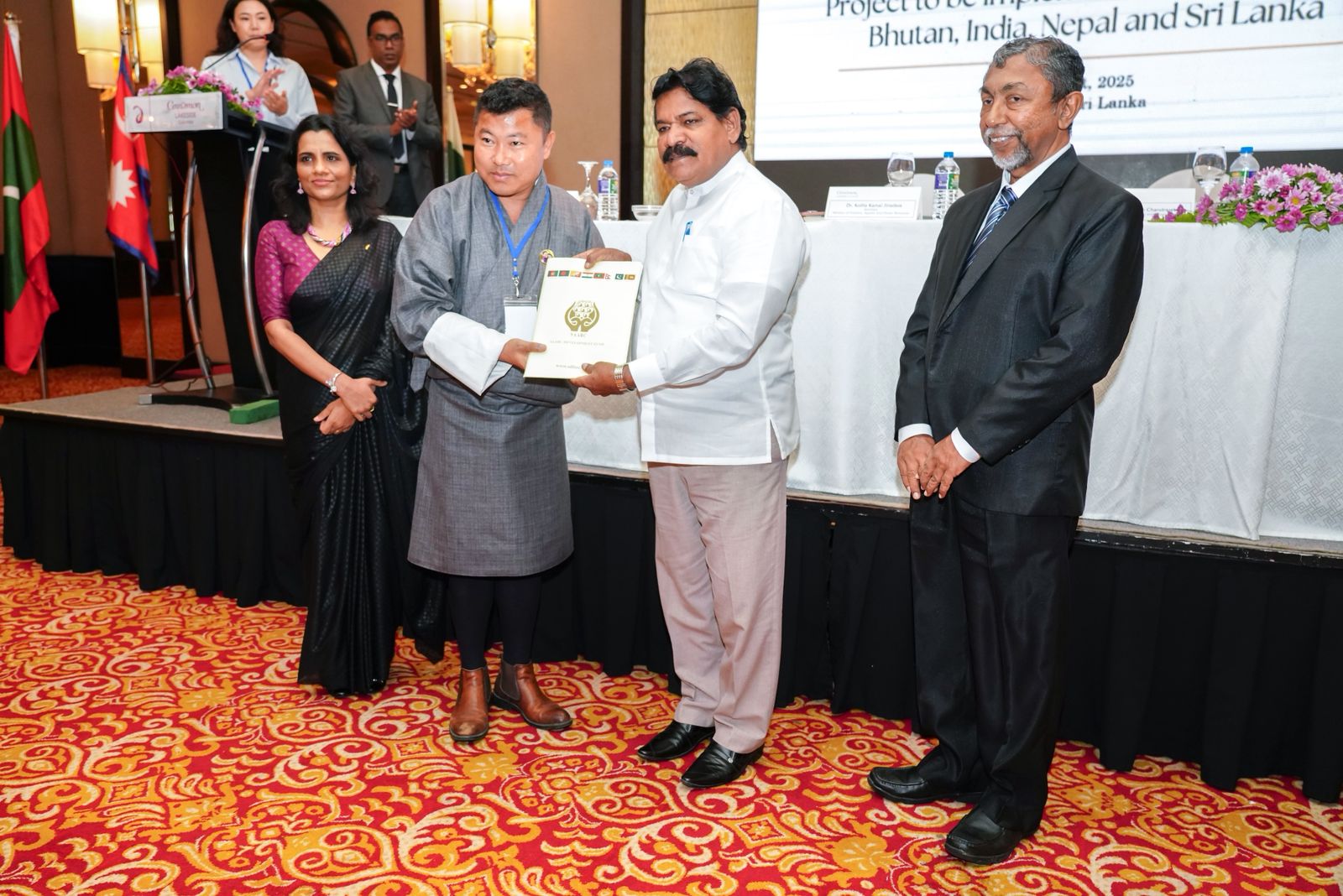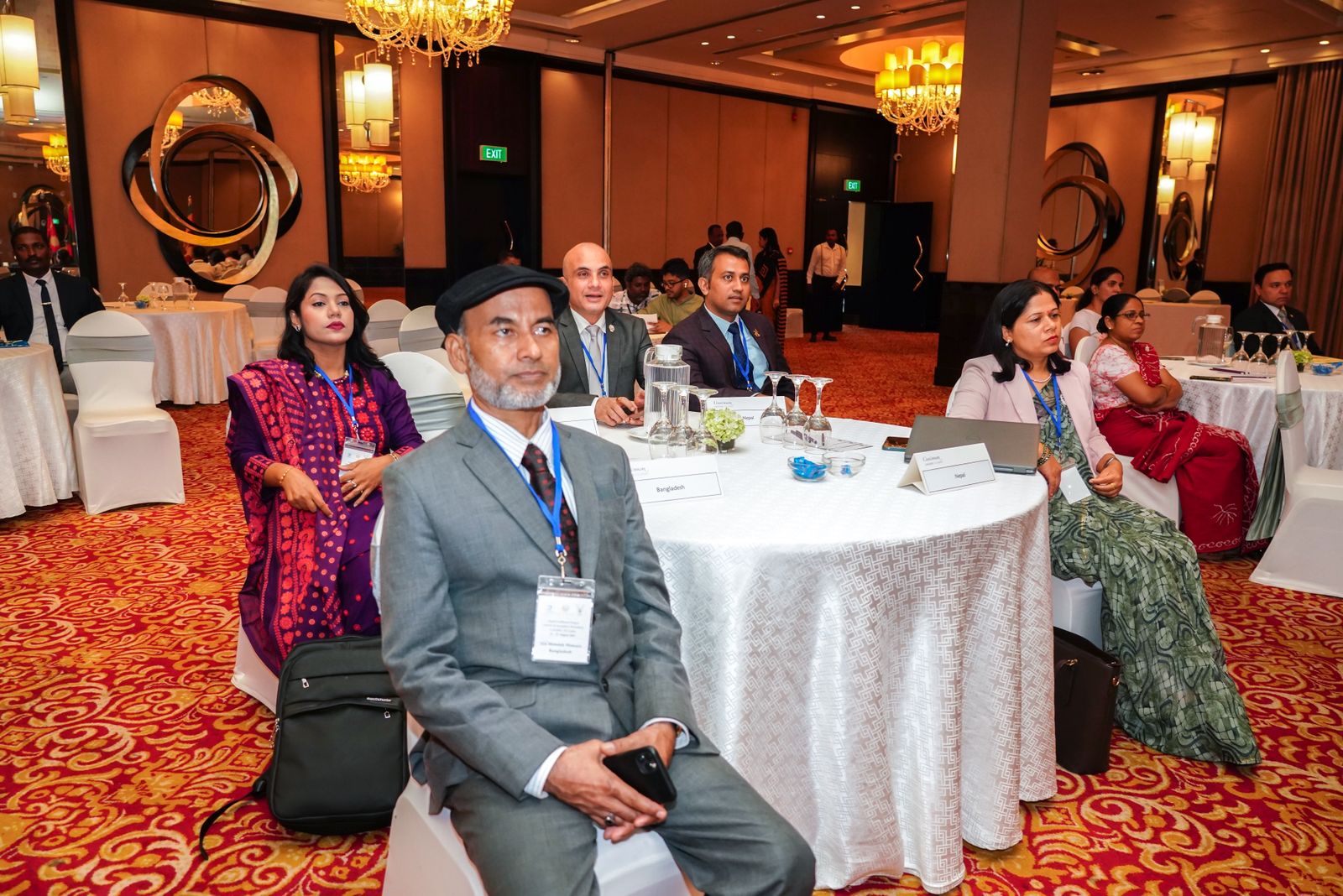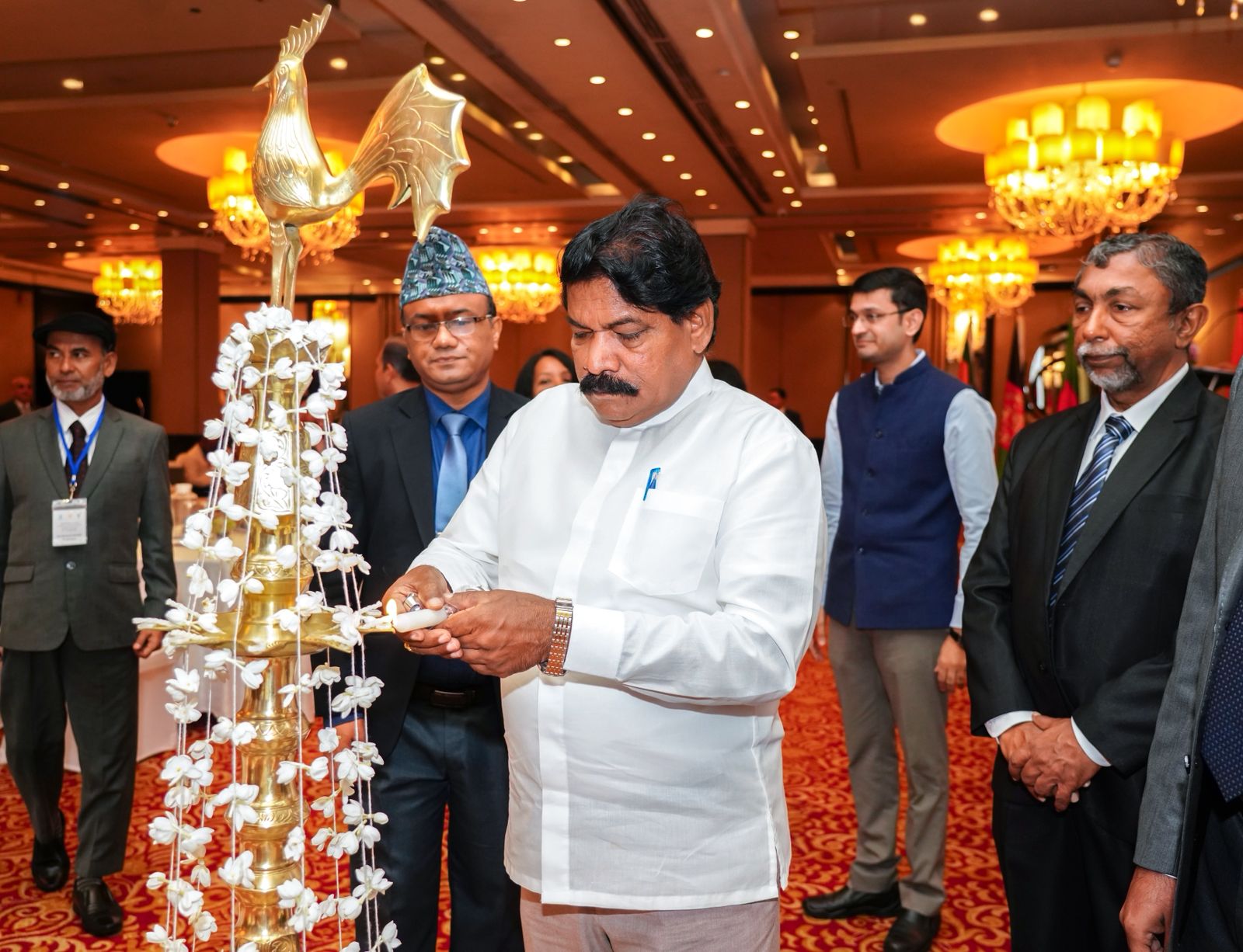
The regional "Aqua Livelihood" project, aimed at empowering small-scale fish farmers and improving nutritional security in the South Asian region, was officially launched in Colombo on 05th of August, in collaboration with the SAARC Development Fund (SDF) and national institutions of member countries.
Minister of Fisheries, Aquatic and Ocean Resources, Mr Ramalingam Chandrasekar, graced the inaugural event as the Chief Guest.
The project, titled "Enhancing the Livelihoods of Small-Scale Fish farmers in the SAARC Region and Ensuring Nutritional Security of Rural Populations through Aquaculture Development", has an investment of USD 3.97 million. This will directly benefit over 120,000 rural families in Bangladesh, Bhutan, India, Nepal, and Sri Lanka.
Under this project, about 11,000 rural fish farming (pisciculture) households in Sri Lanka will directly benefit, and an amount of USD 586,224 (approximately Rs. 175 million) has been allocated for this project. The National Aquaculture Development Authority of Sri Lanka (NAQDA) is the leading agency for the implementation of this project in Sri Lanka.
Speaking on the occasion, Minister of Fisheries, Aquatic and Ocean Resources, Mr Ramalingam Chandrasekar said:
“Today we are not just initiating a project but embarking on a journey. A journey that will support thousands of small-scale fish farmers, strengthen the nutrition and economy of rural families, and build strong partnerships across our region.
The most appealing part of this project is that at least 30% of the beneficiaries are women. It is not just a number, but a message that women must be empowered at every step of development. When we empower women, the entire family is empowered. That in turn strengthens the community and the country. This is a great example of how countries can get together and share knowledge to solve common problems through the SAARC Development Fund. Let us dedicate ourselves to making this project a great success not only for Sri Lanka but also for the entire South Asian region.”
Dr B. K. Kolitha Kamal Jinadasa, Secretary to the Ministry of Fisheries, Aquatic and Ocean Resources:
“This project aims to bridge the gap between research and the reality faced by producers. Another key objective of this project is to establish community-led decentralized fish hatchery units to address the shortage of fish fry in Sri Lanka. By empowering women not only as facilitators but also as decision-makers, producers, and entrepreneurs, we can uplift families and communities. This project is a multi-stakeholder model that involves the government, researchers, the private sector, and the farming community. This ensures the sustainability of the project.”
Mr Kithsiri Dharmapriya, Chairman of the National Aquaculture Development Authority, who made his comments at the event:
“The primary objective of this project is to find solutions for the two major problems in the inland fisheries sector in our countries, i.e., the shortage of quality fish fry and the high cost of fish feed. Under this project, a programme is being implemented to produce low-cost fish feed using locally available raw materials and to increase the production of fish fry in eight districts of Sri Lanka.
Sri Lanka needs about 300,000 metric tons of additional fish harvest. It cannot be obtained from the sea alone. We must develop the inland fishery industry to meet that shortage. We hope that 800–900 families in Sri Lanka will have the opportunity to directly overcome poverty through this project. Likewiser, over 30,000 people will receive indirect benefits.”
